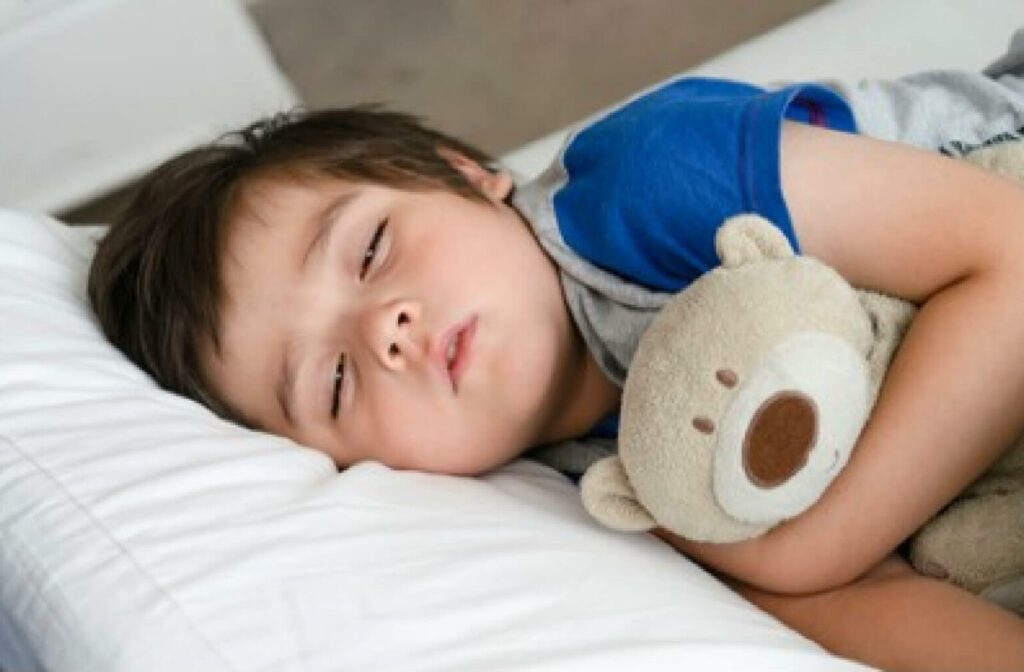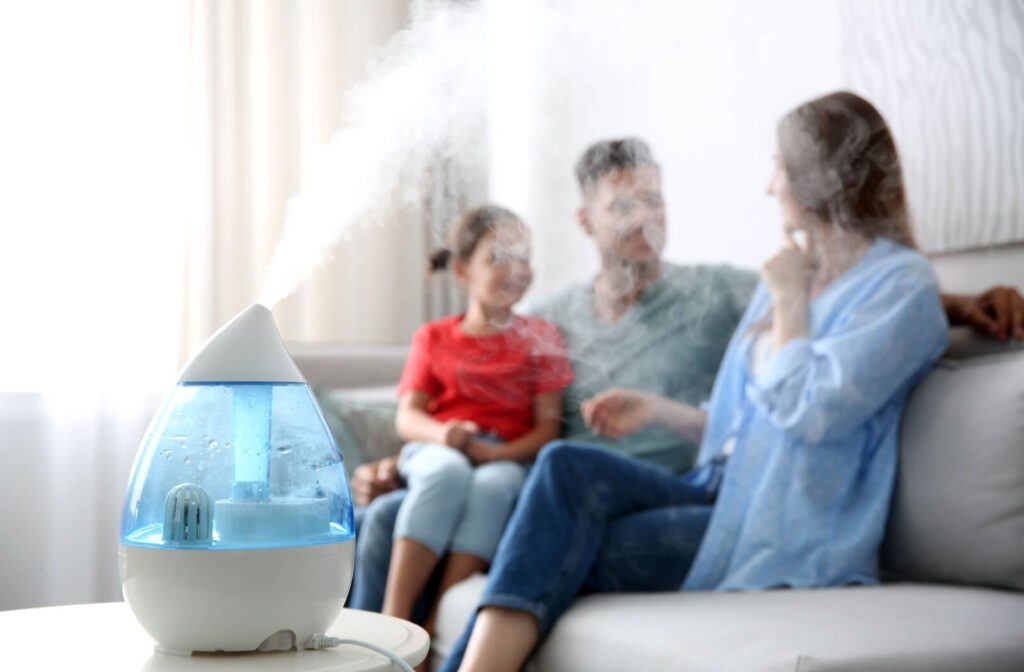Table of Contents

Introduction
If you wake up with dry, irritated, or red eyes, you’re not alone. Dry eye syndrome is a common condition that can cause a range of uncomfortable symptoms.
But why do our eyes feel dry when we wake up? There are a few reasons this may be happening:
- You’re not producing enough tears
- Your tears are evaporating too quickly
- You’re sleeping with your eyes partially open
- You’re on certain medications
Thankfully, there are options for dry eye treatment you can do both at home and with the help of your optometrist.
What Is Dry Eye?
Dry eye disease, also known as dry eye syndrome, is a condition that occurs when your eyes don’t produce enough tears or the tears that are produced are of poor quality. Tears are essential for maintaining the health of the front surface of the eye, as they help to wash away dirt and debris and keep the surface of the eye moist and comfortable.
When your eyes aren’t sufficiently lubricated, you may experience symptoms such as dryness, redness, burning, and even vision problems.
Types of Dry Eye Disease
There are two main types of dry eye disease:
- Evaporative dry eye: This type of dry eye is caused by a problem with the tear film, the thin layer of tears that covers the surface of the eye. The tear film is made up of 3 layers: the outer lipid (oil) layer, the middle aqueous (water) layer, and the inner mucin (mucus) layer. If there’s a problem with the production or distribution of any of these layers, the tear film can become unstable, causing the tears to evaporate too quickly. This can lead to dry eye symptoms.
- Aqueous-deficient dry eye: This type of dry eye is caused by a problem with the tear-producing glands. The tear-producing glands, called lacrimal glands, are located above the outer corner of each eye. If these glands aren’t functioning properly, they may not produce enough tears, leading to dry eye symptoms.
Why Am I Waking Up with Dry Eyes?
There are a few possible reasons why you may wake up with dry eyes.
You’re Not Producing Enough Tears
If you’re not producing enough tears, your eyes can feel dry and uncomfortable.
Your Tears Are Evaporating Too Quickly
Even if you’re producing enough tears, your eyes can still feel dry if they evaporate too quickly. This can be caused by a variety of factors including:
- Dry environments indoors: When using heating during the winter months, the air in your home tends to be drier.
- Air Conditioning: When the temperature in your home decreases, it can also lower the humidity levels inside. This change in humidity can affect the quality of your tear film, causing your tears to evaporate faster.
Sleeping with Your Eyes Partially Open
When we sleep, our eyelids close completely to protect our eyes and keep them moist. Sleeping with your eyes partially open is a condition called nocturnal lagophthalmos.
It can be caused by a variety of factors, including muscle weakness in the eyelids, problems with the facial nerves that control the eyelids, or underlying medical conditions such as thyroid disease or diabetes.
Nocturnal lagophthalmos can cause dry eye symptoms because the eyes don’t fully close during sleep, allowing tears to evaporate from the surface of the eye. This can leave the eyes feeling dry and uncomfortable when you wake up.
If you think you may be experiencing nocturnal lagophthalmos, visit your eye doctor for an evaluation. They can help to determine the cause of your symptoms and recommend treatment options to help you find relief.
Medications That May Cause Dry Eye
Some medications, including antihistamines, decongestants, blood pressure medications, and antidepressants, can cause dry eye symptoms as a side effect.

How to Treat Dry Eye
There are a few things you can try to help treat dry eye symptoms while you sleep:
- Use a humidifier: A humidifier can help to add moisture to the air, which can help to reduce the evaporation of tears from the surface of the eye.
- Try a warm compress: Applying a warm compress to your closed eyelids before bed can help to loosen any oil plugs that may be blocking the meibomian glands.
- Use artificial tears: Artificial tears are a type of eye drop that can help to lubricate the surface of the eye and reduce dryness. They are available over the counter and can be used as needed to relieve dry eye symptoms.
Consult with Your Eye Doctor about Dry Eyes
If you’re experiencing dry eye symptoms that are not relieved by the above measures, it’s a good idea to book an appointment at Golden Vision Optometry for an evaluation.
We can help to determine the cause of your dry eye symptoms and recommend a variety of treatment options to help you find relief.

